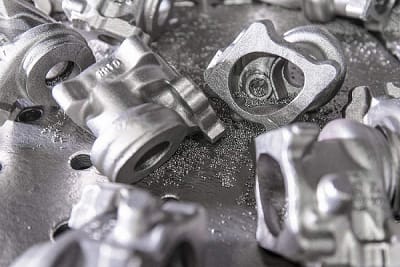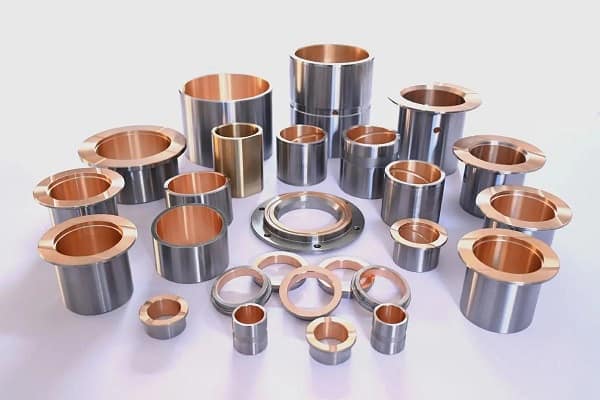The Evolution of Metal Casting in Industrial Manufacturing
In today’s fast-paced industrial world, what is metal casting has emerged as a revolutionary tool that optimizes efficiency, enhances precision, and redefines the standards of metal fabrication. With technological advancements pushing the limits of traditional metal casting, modern industries demand solutions that increase productivity, reduce costs, and improve product quality. What is metal casting is at the forefront of this transformation, providing cutting-edge benefits to industries that rely on robust and precise metal components.
Understanding What is Metal Casting
Metal casting is an age-old process that has undergone significant innovations over the decades. Traditionally, it involved pouring molten metal into a mold to create a desired shape, a technique that, while effective, often faced challenges like material waste, production inefficiencies, and inconsistent quality.
What is metal casting represents a new era in metal casting, integrating modern automation, precision engineering, and advanced material science to deliver unparalleled results. Unlike conventional casting methods, this technology optimizes the entire production process, ensuring higher accuracy, better material utilization, and improved mechanical properties of the final product.
Key Advantages of What is Metal Casting in Industrial Applications
Enhanced Precision and Consistency
One of the most significant advantages of what is metal casting is its ability to produce highly precise metal components with minimal variation. In industries where precision is non-negotiable—such as aerospace, automotive, and medical device manufacturing—this level of accuracy ensures that every cast part meets strict engineering standards. Advanced mold design and automation reduce human errors, making what is metal casting a game-changer in industrial production.

Increased Production Efficiency
Manufacturers constantly seek ways to reduce cycle times while maintaining high product quality. What is metal casting integrates smart automation, allowing for rapid and continuous casting without excessive downtime. This streamlined workflow significantly increases output, enabling companies to meet growing demands without compromising on quality.
Superior Material Utilization and Cost Savings
Traditional metal casting often results in excessive material waste due to inefficient pouring methods and high rejection rates. What is metal casting optimizes material usage by employing advanced gating and feeding systems that minimize scrap metal and improve yield. This not only reduces material costs but also contributes to sustainable manufacturing practices.
Stronger and More Durable Cast Products
Industrial applications require metal components that can withstand extreme conditions, including high temperatures, heavy loads, and corrosive environments. What is metal casting utilizes refined alloy formulations and controlled solidification techniques to enhance the mechanical properties of the final products. The result is stronger, more durable castings with superior tensile strength and resistance to wear and tear.
Customizability for Industry-Specific Needs
Different industries have unique casting requirements, whether it’s high-strength components for construction or intricate designs for medical implants. What is metal casting supports a wide range of casting methods, including sand casting, investment casting, and die casting, offering manufacturers the flexibility to tailor the process to their specific needs.
Reduction in Post-Processing and Machining
In traditional metal casting, extensive post-processing is often required to achieve the final dimensions and surface finish. With what is metal casting, precision engineering and high-quality molds significantly reduce the need for additional machining, leading to faster turnaround times and lower production costs.
Applications of What is Metal Casting in Various Industries
Aerospace and Aviation
Aircraft components must meet rigorous safety and performance standards. What is metal casting ensures that turbine blades, engine components, and structural parts are manufactured with extreme precision, lightweight materials, and superior strength.
Automotive and Heavy Machinery
From engine blocks to transmission housings, the automotive and heavy machinery industries rely on what is metal casting for mass-producing complex metal parts with minimal defects. The enhanced production speed and material efficiency translate into lower manufacturing costs and improved vehicle performance.
Medical and Biomedical Equipment
The medical sector demands intricate, high-precision metal components for implants, surgical instruments, and diagnostic equipment. What is metal casting enables the production of biocompatible metal parts with smooth surfaces and precise dimensions, ensuring patient safety and product reliability.
Industrial Tooling and Construction
Heavy-duty tools, structural components, and industrial-grade metal fittings benefit from what is metal casting, which ensures durability, high load-bearing capacity, and resistance to extreme environmental conditions.
Energy and Power Generation
From wind turbines to gas turbines, energy industries depend on high-performance metal castings for efficiency and reliability. What is metal casting enhances the quality of turbine blades, heat exchangers, and pressure vessels, improving overall energy output and sustainability.
Future Trends: The Role of What is Metal Casting in Industry 4.0
As industries move towards automation and digitalization, what is metal casting is set to play a crucial role in Industry 4.0. Advanced simulations, real-time monitoring, and AI-driven process optimizations will further refine metal casting processes, making them smarter, faster, and more sustainable. The integration of IoT (Internet of Things) will allow manufacturers to track production metrics, optimize material use, and predict maintenance needs, ensuring a seamless and efficient workflow.
Why Industries Should Adopt What is Metal Casting
For industries looking to stay ahead in a competitive market, adopting what is metal casting is a strategic move towards enhanced productivity, cost efficiency, and superior product quality. Whether it’s aerospace, automotive, medical, or heavy industry, the advantages of this modern casting solution are undeniable.
By embracing what is metal casting, manufacturers can achieve higher precision, better material efficiency, and faster production speeds—all while reducing waste and operational costs. The future of industrial manufacturing lies in innovation, and what is metal casting is the key to unlocking unparalleled success.
